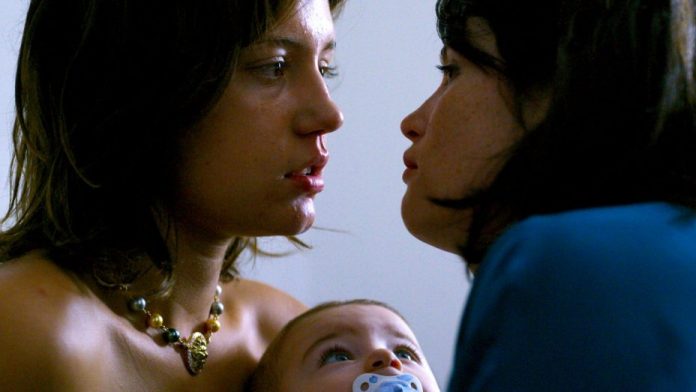Arnaud des Pallieres returns to the silver screen with a distinctly personal endeavour, based loosely on his own wife, Christelle Berthevas’s life experiences. Naturally he’ll have had a very particular vision he intended to carry out, but in doing so caused an initial friction between himself and his actors – with Gemma Arterton resorting to writing a letter of complaint regarding his challenging demands. But you’d have never guessed that be the case when watching the finished product, allowing his performers a certain freedom, and they thrive in this unique, moving portrait of a woman.
We’re delving into the life of one young woman – played by four different actresses, each version with her own respective name. We begin with Renée (Adéle Haenel), a schoolteacher with dreams of becoming a mother, who finds her life shaken with the reintroduction of an old friend recently released from prison (Gemma Arterton). The latter then works as the connection to our next chapter, this time concerning Sandra (Adéle Exarchopoulos), who responds to an advert to work alongside an older gambler (Robert Hunger-Buhler) in a nondescript, shady role.
We then regress back to this girl’s early teenage years – representing the most intriguing act to this indelible drama, with the girl now named Karine (Soléne Rigot), who is subject to abuse from her father, and so drifts from one man to the next, seeking solace. Further back there is Kiki (Vega Cuzytek), a seemingly free-spirited child who witnesses the disappearance of her friends. Each chapter spiked with a deep sadness and tragedy of some kind – before we go full circle, and return back to Renée.
Orphan is a truly resourceful means of storytelling from des Pallieres, which can be disorientating at times, and yet that’s sort of the point, making for an immersive cinematic experience as we embody the lead role(s), for she too is lost. As we progress we piece the film together like a puzzle, and though the changing of names is perplexing to begin with, not to mention the changing of actors who portray this role, it eventually starts to make sense and even establishing this is the filmmaker’s idea at a late stage can be beneficial, as it poses several questions along the way, and the elusive, confusing nature enriches your experience.
Orphan works as an effective metaphor for all of our lives, in how we too are like more than one person, with several different personas as we travel through the journey of our own life. But more intricately, and significantly, Orphan explores the complexities of women, in a way that is seldom seen on screen.








